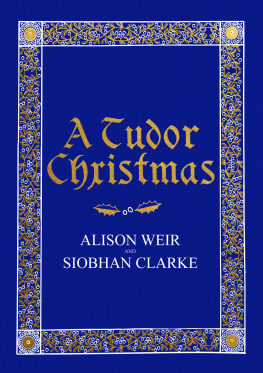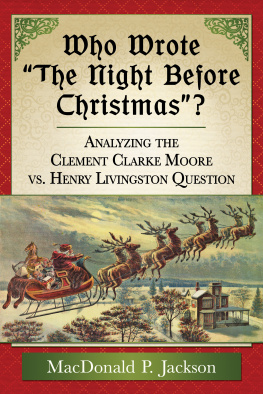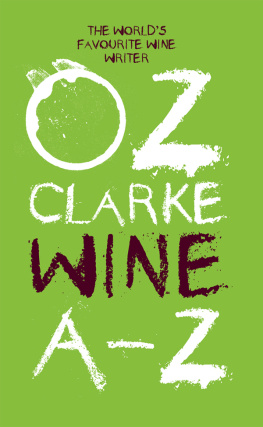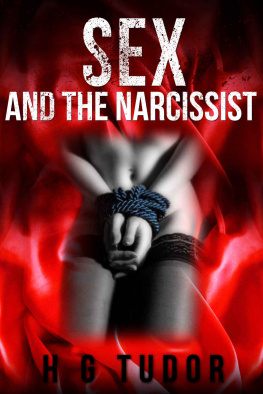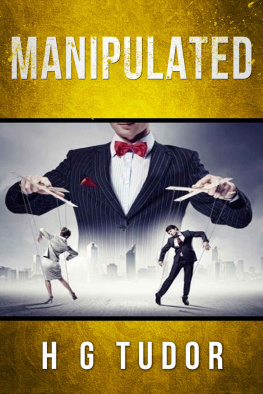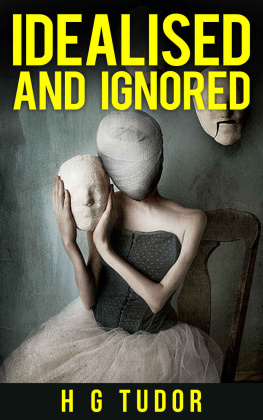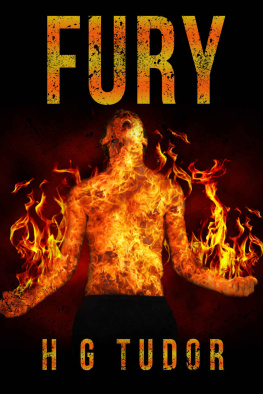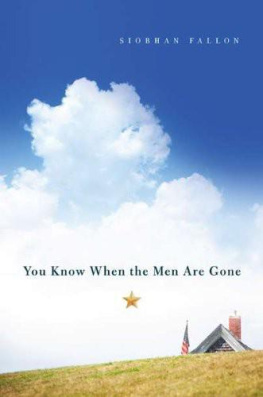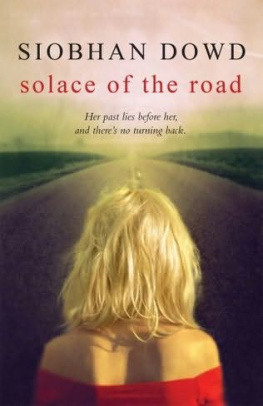Siobhan Clarke - A Tudor Christmas
Here you can read online Siobhan Clarke - A Tudor Christmas full text of the book (entire story) in english for free. Download pdf and epub, get meaning, cover and reviews about this ebook. year: 2018, publisher: Jonathan Cape Ltd, genre: Non-fiction / History. Description of the work, (preface) as well as reviews are available. Best literature library LitArk.com created for fans of good reading and offers a wide selection of genres:
Romance novel
Science fiction
Adventure
Detective
Science
History
Home and family
Prose
Art
Politics
Computer
Non-fiction
Religion
Business
Children
Humor
Choose a favorite category and find really read worthwhile books. Enjoy immersion in the world of imagination, feel the emotions of the characters or learn something new for yourself, make an fascinating discovery.
- Book:A Tudor Christmas
- Author:
- Publisher:Jonathan Cape Ltd
- Genre:
- Year:2018
- Rating:4 / 5
- Favourites:Add to favourites
- Your mark:
- 80
- 1
- 2
- 3
- 4
- 5
A Tudor Christmas: summary, description and annotation
We offer to read an annotation, description, summary or preface (depends on what the author of the book "A Tudor Christmas" wrote himself). If you haven't found the necessary information about the book — write in the comments, we will try to find it.
A Tudor Christmas — read online for free the complete book (whole text) full work
Below is the text of the book, divided by pages. System saving the place of the last page read, allows you to conveniently read the book "A Tudor Christmas" online for free, without having to search again every time where you left off. Put a bookmark, and you can go to the page where you finished reading at any time.
Font size:
Interval:
Bookmark:
To our families, who have always
made Christmas so magical
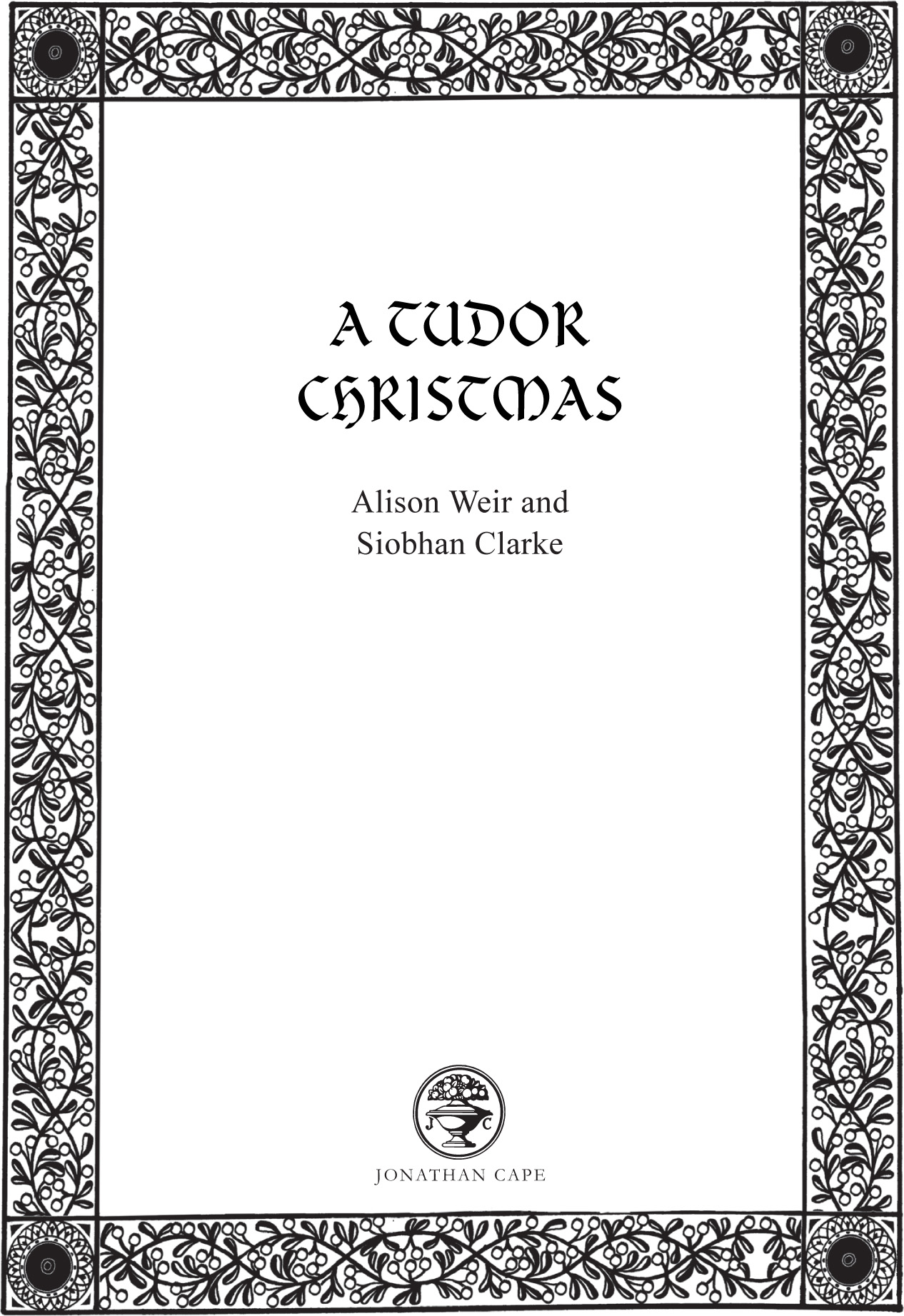
but here a jolly
Verse crownd with ivy and with holly;
That tells of winters tales and mirth
That milk-maids make about the hearth;
Of Christmas sports, the wassail-bowl,
That tossd up, after Fox-i-th-hole;
Of Blind-man-buff, and of the care
That young men have to Shoe the Mare;
Of Twelfth-tide cakes, of peas and beans,
Wherewith ye make those merry scenes,
Whenas ye choose your king and queen,
And cry out, Hey for our town green!
Of ash-heaps, in the which ye use
Husbands and wives by streaks to choose;
Of crackling laurel, which fore-sounds
A plenteous harvest to your grounds;
Of these, and such like things, for shift,
We send instead of New-years gift.
Read then, and when your faces shine
With buxom meat and capring wine,
Remember us in cups full crownd,
And let our city-health go round,
Quite through the young maids and the men,
To the ninth number, if not ten;
Until the fired chestnuts leap
For joy to see the fruits ye reap,
From the plump chalice and the cup
That tempts till it be tossed up.
Then as ye sit about your embers,
Call not to mind those fled Decembers;
But think on these, that are t appear,
As daughters to the instant year;
Sit crownd with rose-buds, and carouse,
Till LIBER PATER twirls the house
About your ears, and lay upon
The year, your cares, thats fled and gone:
And let the russet swains the plough
And harrow hang up resting now;
And to the bag-pipe all address,
Till sleep takes place of weariness.
And thus throughout, with Christmas plays,
Frolic the full twelve holy-days.
Robert Herrick, A New Years Gift to Sir Simeon Steward, 1628

All hail to the days that merit more praise
Than all the rest of the year,
And welcome the nights that double delights,
As well for the poor as the peer!
Good fortune attend each merry mans friend,
That doth but the best that he may;
Forgetting old wrongs, with carols and songs,
To drive the cold winter away.
This time of the year is spent in good cheer,
And neighbours together do meet,
To sit by the fire, with friendly desire,
Each other in love do greet;
Old grudges forgot, are put in the pot,
All sorrows aside they lay,
The old and the young doth carol his song,
To drive the cold winter away.
To mask and to mum kind neighbours will come
With wassails of nut-brown ale,
To drink and carouse to all in the house,
As merry as bucks in the dale;
Where cake, bread and cheese is brought for your fees,
To make you the longer stay;
At the fire to warm will do you no harm,
To drive the cold winter away.
When Christmastide comes in like a bride,
With holly and ivy clad,
Twelve days in the year, much mirth and good cheer,
In every household is had;
The country guise is then to devise
Some gambols of Christmas play,
Whereat the young men do best that they can,
To drive the cold winter away.
When white-bearded frost hath threatened his worst,
And fallen from branch and brier,
Then time away calls, from husbandry halls
And from the good countrymans fire,
Together to go to plough and to sow,
To get us both food and array;
And thus with content the time we have spent
To drive the cold winter away.

For at least five thousand years, the depth of winter has been a time for merrymaking and conviviality, to drive the cold winter away, as one popular Jacobean song had it. Many of the major world religions have festivals of light to counteract the darkest season of the year, and Christmas is one of the greatest, most splendid and most loved of them all.
For many people, it is a season of special celebration and festivity, a spiritual journey of peace and hope, a magical time of tradition and mystery. It can involve weeks of preparation, decoration, cooking and entertaining. In Tudor England, things were much the same. We might think that our modern Christmas derives largely from the Victorians, who popularised Christmas trees, Christmas cards and Father Christmas, but in fact many of our traditions such as eating mince pies, singing carols and kissing under the mistletoe date back to Tudor times and beyond. In these pages, you can discover more about these, as well as encountering other customs that have fallen into disuse, from the Lords of Misrule to the Queen of the Pea.
In Tudor times, as today people enjoyed a good dinner and special festive fare. They went to church on Christmas morning, opened up their houses to family and friends, ate and drank as much as they could afford, gathered around the fire roasting chestnuts, played games, danced, told ghost stories and exchanged gifts. Christmas, as described in 1623 by Lancelot Andrews, Bishop of Winchester, was a time for gathering together, neighbourly meetings and invitations, good housekeeping and hospitality. For this short, enchanting season, everyday cares were set aside and the emphasis was on everyone enjoying themselves.
The history of Christmas does not begin with Christ, as our Christmas rituals evolved from pagan rites. Pagan peoples celebrated the winter solstice the shortest day of the year. The winter solstice was immensely important at a time when communities could not be certain of living through the winter. When the hours of darkness were at their longest, the solstice was a turning point, bringing with it the promise that soon the days would grow longer and the sun would return, warming the earth and bringing new life and hope. The fourth-century Christian Church adopted 21 December, the day of the winter solstice, as the feast day of St Thomas the Apostle.
Northern Europeans called the solstice Jul a term remembered in the English word Yule, which now means Christmas. Yule marked the death of one year and the birth of the next. It is also associated with the ancient legendary fertility figure of the Green Man, or Ing, who represents rebirth. The symbol of Ing is the boar, and in ancient times, a boars head was traditionally served on a bed of greenery on Midwinter Day.
Long before the Middle Ages, old pagan traditions were absorbed into Christian festivals. The actual date of Christs birth is unknown, but the fact that Christmas falls around the same time as the winter solstice and the ancient Roman festival of Saturnalia is no coincidence. Saturnalia was celebrated from 17 to 23 December; Saturn being the Roman god of fertility, it was the occasion for riotous feasting, drunkenness, mischief-making, games and orgies, a time when formal roles were reversed, with masters waiting upon slaves, and a king was chosen to keep rule over the festivities. Many of those elements remained part of the Christmas tradition.
The birth of the popular Roman god Mithras was celebrated on 25 December, and in AD 354, the Emperor Aurelian decreed that this day be named Natalis Solis Invicti, to celebrate the birth of the pagan sun god Sol. Some scholars have suggested that this festival was also adopted by the Christian Church, to commemorate the Nativity, but in the oldest-surviving Christian chronology, written in AD 221, the historian Julius Africanus postulated that Jesus was conceived on 25 March, which later became known as Lady Day, after the Virgin Marys miraculous conception. Since 25 December fell nine months later, it is no surprise that that date was adopted as Christmas Day well before the end of the third century, and recognised by the Roman Church in the fourth century.
Next pageFont size:
Interval:
Bookmark:
Similar books «A Tudor Christmas»
Look at similar books to A Tudor Christmas. We have selected literature similar in name and meaning in the hope of providing readers with more options to find new, interesting, not yet read works.
Discussion, reviews of the book A Tudor Christmas and just readers' own opinions. Leave your comments, write what you think about the work, its meaning or the main characters. Specify what exactly you liked and what you didn't like, and why you think so.

